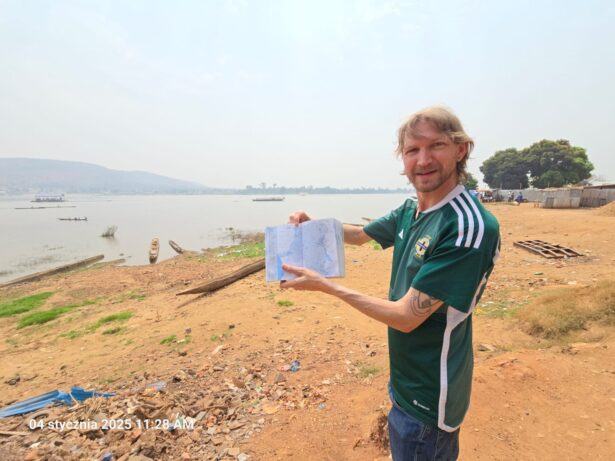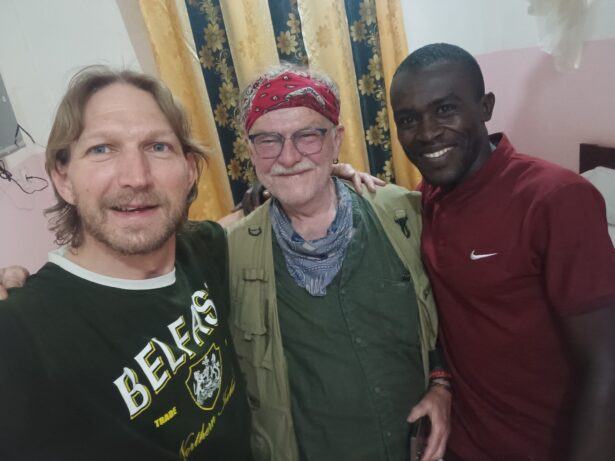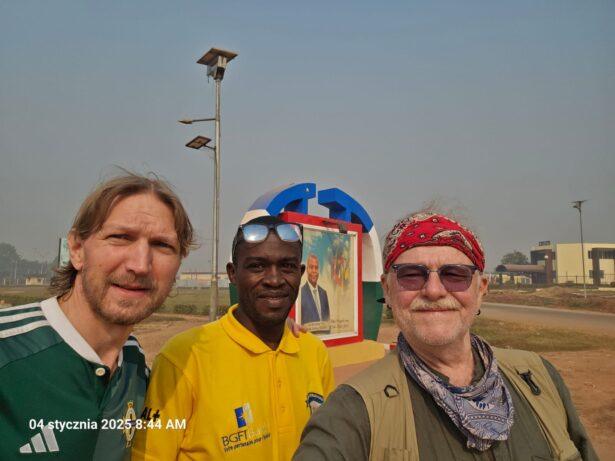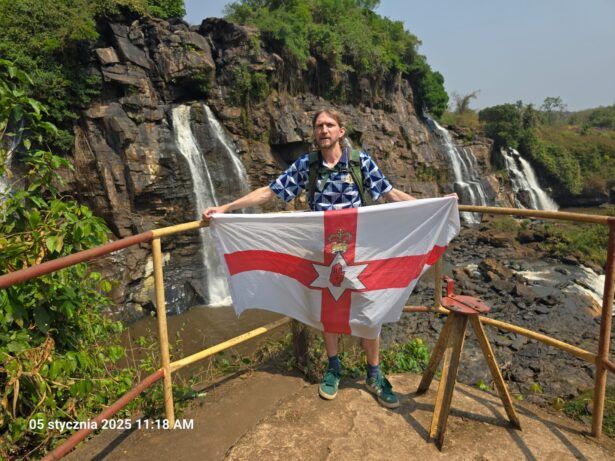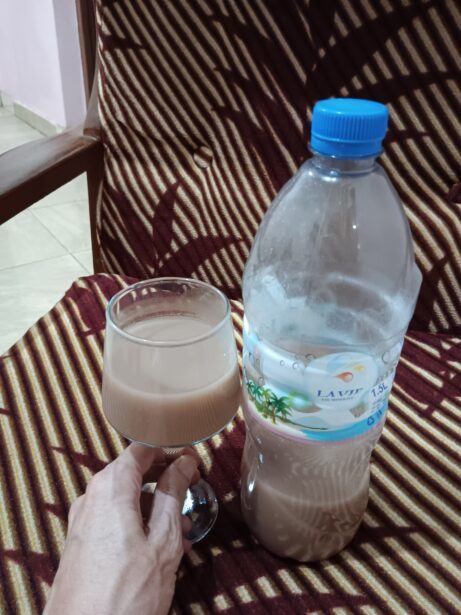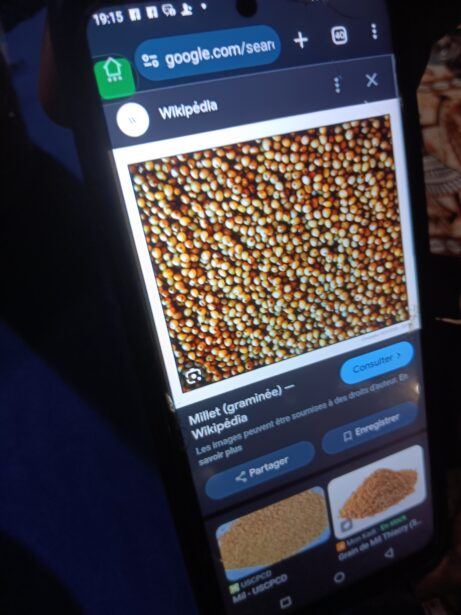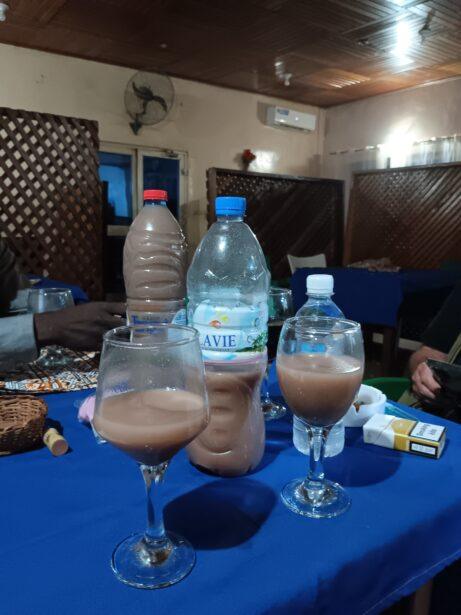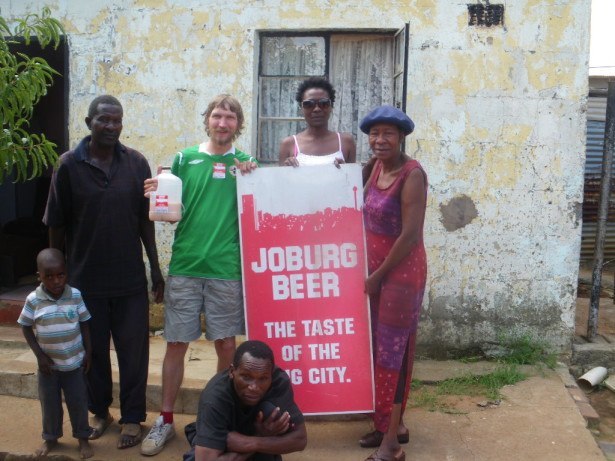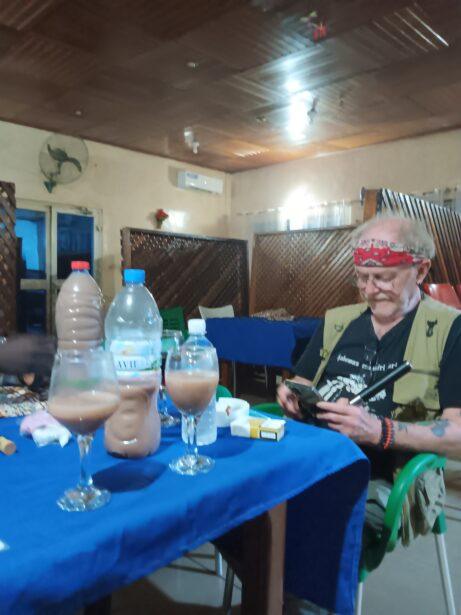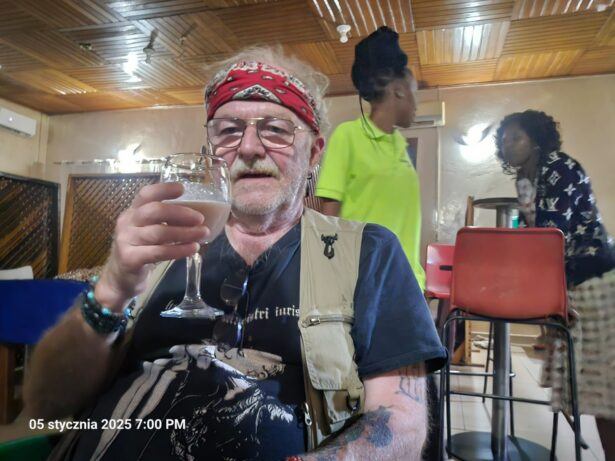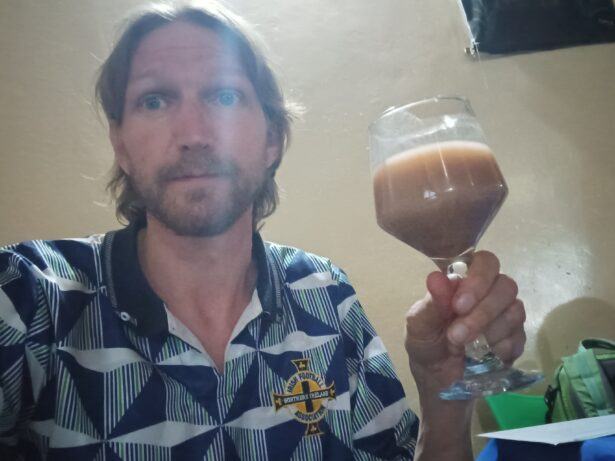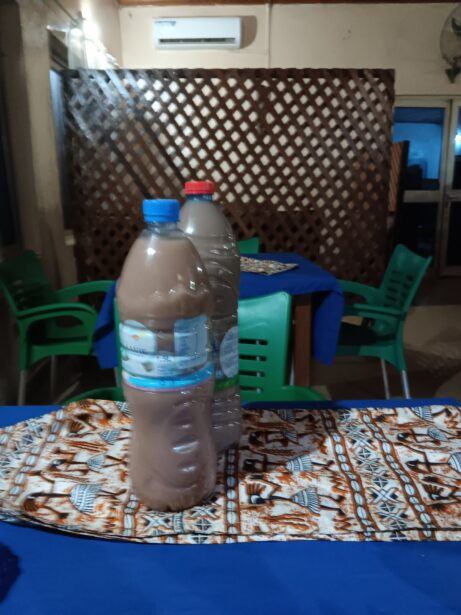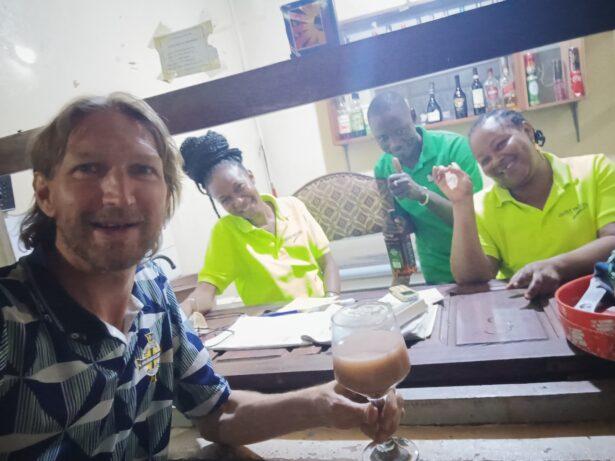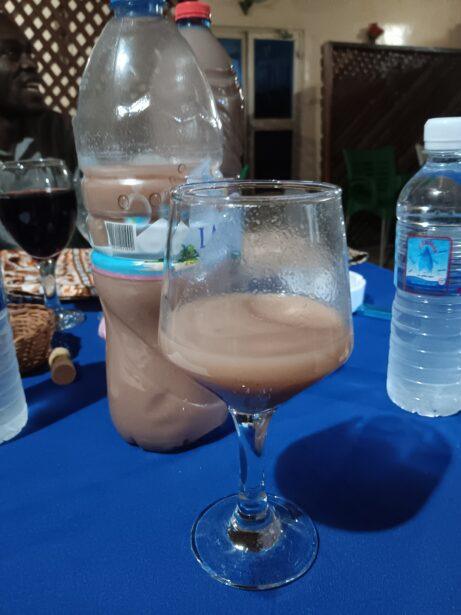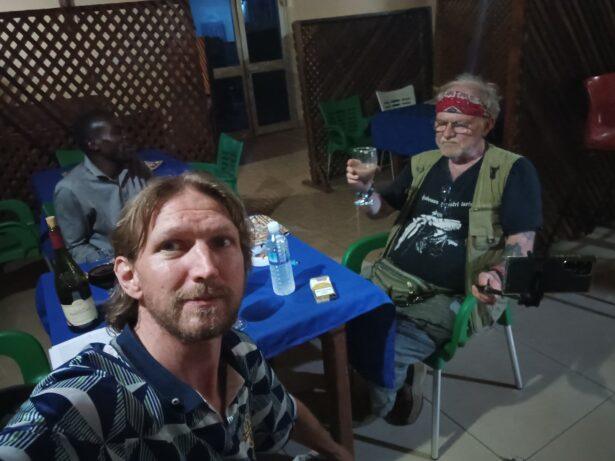“Best under pressure, with seconds left, I show up” – Usher.
Central African Republic was certainly a wildcard country addition to my travel jigsaw in January 2025.
After three visa refusals/failures (in Poland, Burkina Faso and Abidjan), we finally were granted a visa with 7 minutes left to board our flight from Douala in Cameroon to Bangui in Central African Republic.
Thanks to Tognama our visa saviour. Now we were finally and deservedly here in Central African Republic. We checked into the marvellous Gust Hotel in Bangui.
We toured the sights of Bangui, whackpacked down to the “Congo Zongo” border and headed to the mind boggling Boali Falls in Africa’s actual heart.
We also enjoyed the bars of the country in our final act of this trip. But one thing was missing in those bars…
Bilibili!!
What is Billibilli?
Billibilli is a local alcoholic drink available only by asking people in Central African Republic. It is not sold in bars, cafes, restaurants or shops. You have to ask people for it. Let’s say it’s some local version of Bimber (in Poland) or Potcheen (in Ireland).
Our host and visa legend Tognama had the contacts and on our final night we were promised the Bilibili. Here is what is in Bilibili…and a quick guide on how it is made…
Bilibili is made from millet. The millet seeds are poured into a large pot to which water is added and then left for 24 hours.
The next day, it is left to dry a little then it is taken to the mill to crush it.
Then the brewers put the pot with water on the fire and add millet flour in a measured quantity and everything is left to boil for a while. After having lowered the temperature, it is left to ferment for 24 hours. The Bilibili is then ready to be consumed.
It is poured into jugs, jars, bottles and glasses and sold and consumed. Friends and family often congregate and share it together.
The colour is an odd milky pinky brown. It reminded me in colour of a local beer I’d consumed in the shebeens of Soweto, South Africa in 2010.
It was time to try this beast. Tognama brought us in 2 large 1.5 litre bottles of homemade Bilibili to the lower bar in Gust Hotel! We were not expecting it to be in big bottles, rather a small bottle to share or even to drink in shots.
So we sunk our first glass. Marek didn’t enjoy it as much as me so he stuck to the single glass whilst I finished the rest of the 1.5 litre bottle over that evening and a final small glass the next morning.
The taste is bizarre. Milky and with sediment. Like a beer to sip but nothing like a beer to taste. Like a wine to aftertaste but nothing like the aftertaste of wine. Peculiar taste, you really have to try it.
Also, shake it and stir it, as the sediment goes to the bottom, often leaving the top part looking like a poor milky water.
As we received 2 x 1.5 litre bottles of Bilibili on our last night in Bangui, we drank only one of them and decided to take the rest back to Poland for our Polish friends to try. I’m hand luggage loyal but Marek my travel buddy takes a suitcase so we were able to whack the Bilibili in that.
After the trip, we did a presentation on Africa Away where Ania and Bogdan got to try the Bilibili in Olsztyn, Poland. Nobody was mindblown or amazingly keen on Bilibili but alas it had to be tried. Once in a lifetime, at least.
Here are the details of Tognama:
mltognama4@gmail.com
+250 791 750 721
Here are the details for booking the Gust Hotel in Bangui, Central African Republic:
Address:
Here are some videos of us trying the Bilibili in Bangui, Central African Republic:


